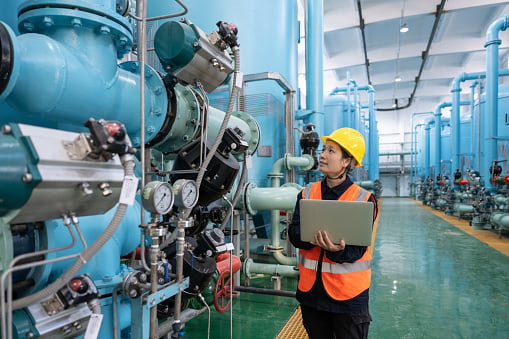Topics: manufacturing process, Sustainability, technology, Efficiency, productivity, flexibility, cost management, Digital Transformation, Resilient

The manufacturing industry is a crucial sector for any economy. It creates jobs, drives innovation, and contributes to the overall economic growth of a country. Over the years, the industry has witnessed several changes in terms of processes, technologies, and practices. In the 21st century, manufacturing is set to undergo a major transformation as the world embraces the concept of Next Generation Manufacturing (NGM).
Next Generation Manufacturing is a broad term that refers to the use of advanced technologies, innovative processes, and digital transformation to optimize manufacturing operations. NGM is not just about improving efficiency, reducing costs, and increasing productivity. It's about transforming the way we think about manufacturing, embracing new technologies, and creating sustainable, flexible, and resilient manufacturing systems that can adapt to changing market conditions.
In this blog, we will explore the concept of Next Generation Manufacturing in detail and discuss how it can benefit manufacturing facilities.
The Evolution of Manufacturing
The history of manufacturing can be traced back to the Industrial Revolution of the 18th century. The invention of the steam engine and the mechanization of production processes paved the way for mass production. The 20th century saw the rise of assembly-line manufacturing, which further increased production efficiency and reduced costs.
In the 21st century, manufacturing is set to undergo a major transformation as we enter the era of Next Generation Manufacturing. The rise of digital technologies, the Internet of Things (IoT), and Industry 4.0 has given rise to a new era of manufacturing.
The Components of Next Generation Manufacturing
Next Generation Manufacturing is a complex and multifaceted concept that encompasses several components. These components include:
1. Digital Transformation: The use of digital technologies to optimize manufacturing operations.
2. Advanced Materials: The use of advanced materials such as composites, ceramics, and nanomaterials to improve product performance and reduce costs.
3. Additive Manufacturing: The use of 3D printing and other additive manufacturing technologies to create complex parts and components.
4. Robotics and Automation: The use of robots and automation to improve efficiency, reduce costs, and improve quality.
5. Sustainable Manufacturing: The use of sustainable manufacturing practices to reduce environmental impact and improve social responsibility.
The Benefits of Next Generation Manufacturing
Next Generation Manufacturing offers several benefits to manufacturing facilities. These benefits include:
1. Improved Efficiency: NGM can improve production efficiency by optimizing processes, reducing waste, and improving quality.
2. Reduced Costs: NGM can reduce production costs by eliminating waste, improving productivity, and reducing material costs.
3. Increased Flexibility: NGM can create flexible manufacturing systems that can adapt to changing market conditions.
4. Improved Quality: NGM can improve product quality by reducing defects and ensuring consistency.
5. Enhanced Innovation: NGM can drive innovation by creating new products and processes that were previously impossible.
The Challenges of Next Generation Manufacturing
Next Generation Manufacturing is not without its challenges. Some of the challenges include:
1. High Implementation Costs: Implementing NGM technologies can be expensive, and many manufacturing facilities may not have the resources to do so.
2. Resistance to Change: Resistance to change is a common challenge when implementing NGM technologies, and it can slow down the adoption process.
3. Lack of Skilled Workers: NGM requires skilled workers who are familiar with advanced technologies, and there may be a shortage of such workers.
4. Cybersecurity Risks: The use of digital technologies in NGM can create cybersecurity risks that need to be addressed.
Next Generation Manufacturing is a game-changer for the manufacturing industry. It offers several benefits, including improved efficiency, reduced costs, increased flexibility, improved quality, and enhanced innovation. However, implementing NGM technologies can be challenging, and manufacturing facilities need to be prepared to invest in new equipment, retrain workers, and adapt their processes to fully realize the benefits of NGM. Despite these challenges, the potential benefits of NGM make it a crucial step towards a more sustainable and efficient manufacturing industry. The future of manufacturing is in NGM, and companies that embrace this technology will have a competitive edge in the market.
Topics: manufacturing process, Sustainability, technology, Efficiency, productivity, flexibility, cost management, Digital Transformation, Resilient
0 Comments
No video selected
Select a video type in the sidebar.







LEAVE A COMMENT